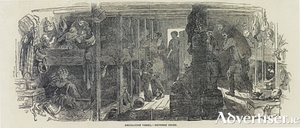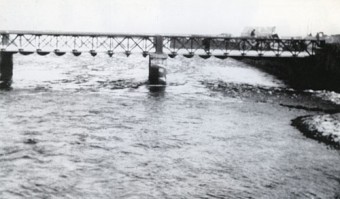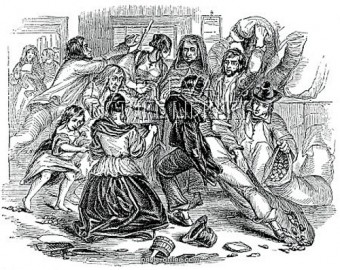Search Results for 'Hamish Hamilton'
3 results found.
Getting rid of the troublesome women

One of the remedies in dealing with overcrowding, and rebellious behaviour from frustrated and angry women in the workhouses during the famine years, was assisted emigration. This was done on a massive scale. Between 1848 and 1850, 4,175 women were sent direct from the workhouse system to Australia. This was in addition to the thousands already sent away assisted by landlords and other schemes to clear the land of unproductive tenants. The only cost to the individual Poor Law unions was for new clothes, and travel expenses to Plymouth, from where the girls embarked to the colony.
Time we turned and faced the water

If there is one thing that ‘Let’s Do It Galway’ - those inspirational people who guided the Volvo Ocean Race into our beautiful Bay- has taught us, and that is that the sea is a resource for possibility and opportunity. For too long Galway, and other coastal towns, have regarded the sea as a source of separation, and a reminder of bad times. In Galway, despite having a wide river flowing through it, and an expansive bay on its shoreline, buildings in general have turned their backs to it.
Hundreds of thousands starved while the sea teemed with fish

Reading William Henry’s book Famine - Galway’s Darkest Days*, I was struck yet again by the fact that while thousands of people died of starvation in the west of Ireland, when whole communities abandoned their homes in a desperate search for food, our seas were boiling with fish. The author tells us that in Galway at the beginning of the Great Famine in 1845 the Claddagh fishermen fiercely protected their fishing rights in the Bay, which they regarded as their exclusive property. But as the famine dragged on to the end of the decade the Claddagh fishermen had no means left for catching fish. They had pawned their boats and fishing equipment for food. The historian Cecil Woodham-Smith in her classic account of the Great Famine**, tells us that on January 9 1847, ‘all boats were drawn up to the quay wall, stripped to the bare poles, not a sign of tackle or sail remaining....not a fish was to be had in the town, not a boat was at sea.’

